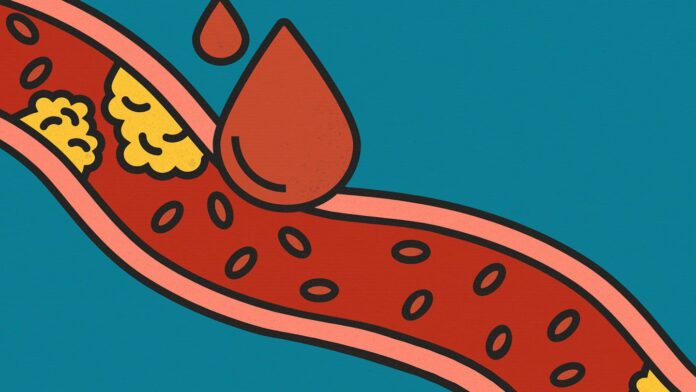The human body needs cholesterol to survive. Cholesterol is necessary for the production of cell membranes, hormones, and vitamin D. However, if your cholesterol levels are too high, then you could be at risk for heart attacks or stroke. Your diet can affect the amount of cholesterol in your bloodstream by either raising or lowering it.
There are 5 major causes of high cholesterol that you should know so that you can take steps towards prevention:
Inactivity
To keep your cholesterol levels in check, you must get active and exercise regularly. Even if you don’t think that exercising will help, studies have shown that a little bit of physical activity can reduce the risk of heart disease by 30%. When you are inactive, it puts more strain on your body. This causes an increase in stress hormones, such as cortisol, which leads to increased production of LDL or bad cholesterol. This increases the likelihood of plaque buildup along with other unhealthy consequences. Exercise doesn’t need to be strenuous either; even light activities like walking can bring about positive results.
Unhealthy Diet
This is one of the most important causes of high cholesterol. Eating foods rich in trans fats, saturated fat, and dietary cholesterol can raise your LDL levels. They increase plaque buildup along with other negative consequences. A diet that comprises processed food has been a cause of high blood pressure. This leads to heart attack or strokes due to a lack of oxygen reaching certain parts of the body, including the brain.
Unhealthy habits like smoking also affect your body by causing damage, making it more challenging to exercise. Also, reducing HDL production helps clean up LDL from our arteries slower than usual. Foods such as eggs contain both protein and healthy monounsaturated fats. This may raise HDL levels while also providing other health benefits.
An excellent way to improve your diet is by replacing unhealthy foods with healthier ones. Start by making simple swaps such as swapping out regular soda for sparkling water or using olive oil instead of butter when cooking. Also, probiotics for cholesterol are one way to help keep your levels in check. If you struggle with knowing what to eat, consult a nutritionist or read up on healthy recipes that fit into your lifestyle. There are plenty of resources online and in libraries that can help get you started on the right path.
Lack of Sleep
Studies have shown that the amount of sleep we get each night can affect our cholesterol levels. When you are sleeping, your body releases cortisol, which helps regulate blood sugar and LDL or inadequate cholesterol production. If you aren’t getting enough rest, then it will cause an increase in stress hormones. Thus, leading to health problems such as high blood pressure due to lack of oxygen reaching certain parts of the brain.
To help improve how much you’re sleeping, try taking shorter naps during the day (20 minutes). Avoid caffeine after lunchtime since caffeine has disrupted sleep patterns at night time. For example, try not to check social media accounts right before bed; this is a significant factor in lack of sleep.
Genetics
Some people are predisposed to having high cholesterol levels because of their genes. This means that they may have a more challenging time than others in keeping their cholesterol levels down, even with diet and lifestyle changes. If this is the case, they need to see a doctor and get regular screenings done to catch any health complications early on. There are many medications out there that can help lower your cholesterol levels if you fall into this category. Ask your doctor about what options are available to you and whether taking medication is the best course of action.
Age
As you get older, your cholesterol levels naturally increase. This is because of a decrease in HDL or good cholesterol that our bodies produce and an increase in harmful cholesterol particles. While there isn’t much that can be done about this, it is still essential to keep track of your cholesterol levels as you get older. Also, make sure that you follow a healthy diet and exercise regularly.
Final Thought
High cholesterol can be a serious issue and should not be taken lightly. Suppose you are experiencing any of the symptoms listed above. In that case, it is essential to see your doctor for a proper diagnosis and treatment plan by being aware of the different causes of high cholesterol. You can take the necessary steps to lower your risk for heart disease or other health complications in the future.






















